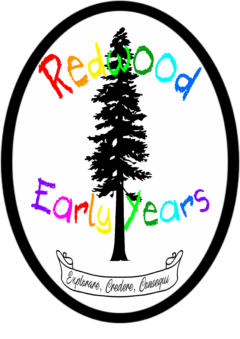Equal Opportunities Policy
We actively promote inclusion, equality of opportunity and value diversity. We have legal obligations under the Equality Act 2010. Those in receipt of public funding also have public equality duties to eliminate discrimination, promote equality, foster good relations with individuals and groups with protected characteristics namely disability, race (ethnicity), religion and belief, sexual orientation, sex (gender), gender reassignment, age, pregnancy and maternity, marriage and civil partnership. We also have obligations under the Prevent Duty (2015) which highlights the need to foster equality and prevent children from being drawn into harm and radicalisation.
We believe that the group’s activities should be open to all children and families, and to all adults committed to their welfare. We aim to ensure that all who wish to work in, or volunteer to help with, our Playgroup have an equal chance to do so.
Admissions
The setting is open to every family in the community. Families joining the setting are made aware of its equal opportunities policy.
Employment
Staff are recruited through advertising in the relevant place e.g. CIC (Children’s Information Service) Wokingham. The setting will appoint the best person for each job and will treat fairly all applicants for jobs and all those appointed.
Commitment to implementing the group’s Equal Opportunities Policy will form part of the job description for all workers.
Families
Redwood Early Years recognises that many different types of family successfully love and care for children.
The setting offers a flexible payment system for families with differing means.
Festivals
Our aim is to show respectful awareness of all the major events in the lives of the children and families in the setting, and in our society as a whole, and to welcome the diversity of backgrounds from which they come.
In order to achieve this, we aim to acknowledge all the festivals which are celebrated in our area and/or by the families involved in the setting:
- Without indoctrination in any specific faith, children will be made aware of the festivals which are being celebrated by their own families or others and will be introduced where appropriate to the stories behind the festivals.
- Before introducing a festival with which the adults in the setting are not themselves familiar, appropriate advice will be sought from people to whom that festival is a familiar one.
- Children and families who celebrate at home festivals with which the rest of the setting is not familiar will be invited to share their festivals with the rest of the group, if they themselves wish to do so.
- Children will be encouraged to welcome a range of different festivals, together with the stories, celebrations and special food and clothing they involve, as part of the diversity of life.
The Curriculum
All children will be respected and their individuality and potential recognised, valued, and nurtured. Activities and the use of play equipment offer children opportunities to develop in an environment free from prejudice and discrimination. Appropriate opportunities will be given to children to explore, acknowledge and value similarities and differences between themselves and others.
Resources
These will be chosen to give children a balanced view of the world and an appreciation of the rich diversity of our multi-racial society.
Materials will be selected to help children to develop their self-respect and to respect other people by avoiding stereotypes and derogatory pictures or messages about any group of people.
Special Needs
The setting recognises the wide range of special needs of children and families in the community and will consider what part it can play in meeting these needs.
Planning for setting meetings and events will take into account the needs of people with disabilities.
Discriminatory Behaviours
These are unacceptable in the setting.
The response will aim to be sensitive to the feelings of the victim(s) and help those responsible to understand and overcome their prejudices.
Language
Information, written and spoken, will be clearly communicated in as many languages as necessary.
Bilingual/multilingual children and adults are an asset. They will be valued, and their languages recognised and respected in the setting.
Food
Medical, cultural and dietary needs will be met.
Meetings
The time, place and conduct of meetings will ensure that all families have an equal opportunity to be involved in the running of the setting.
English as an Additional Language
For children whose home language is not English, we will take reasonable steps to provide opportunities for children to develop and use their home language in play and learning, supporting their language development at home. When assessing communication, language and literacy skills, the setting must assess children’s skills in English. If a child does not have a strong grasp of English language, practitioners must explore the child’s skills in the home language with parents and/or carers to establish whether there is cause for concern about language delay.
